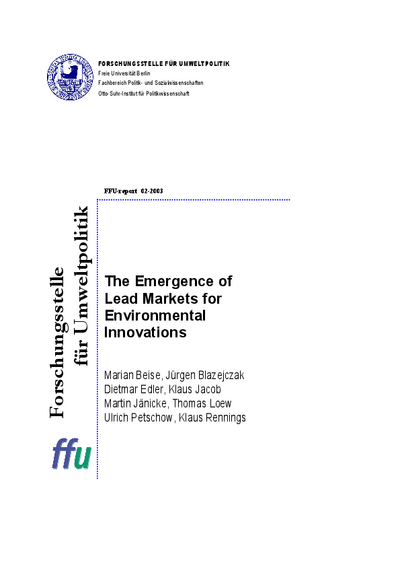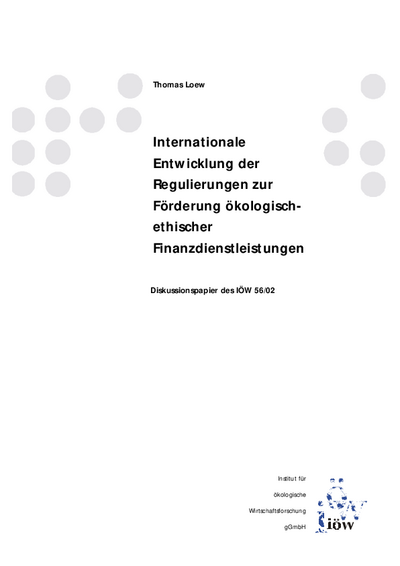Policy Patterns for the Creation of International Markets for Innovations for Sustainable Development How Pilot-Markets become Lead-Markets
This interdisciplinary research project aims to find out under which conditions Lead - Markets for sustainable products and processes develop, and how such conditions can be improved on by policy.
Lead- Markets for sustainable innovations are regional or national markets, which have developed due to comparatively higher preferences for environmental protection, specific incentives or government intervention, and at the same time set international technological standards. These in turn have an effect on competition in other market regions, initiate respective reactions of adjustment and thus lead to the international diffusion of the new technology or innovation. It is often the case that exports of certain industries have benefited from national environmental regulation and its international spreading. It can also be the case that pioneer countries’ measures for the protection of the environment set standards for multinationals corporations, which will further contribute to their diffusion. In this process, political and technological diffusions of innovations are working together. In this case, the emerging potential for state intervention to modernise international markets, with respect to sustainable development, could possess large significance.
During the first phase of the project we shall re-analyse empirical studies regarding:
· Regulations creating positive conditions for the development of Lead- Markets
· Diffusion of sustainable innovations, in particular ecological innovations
· Case studies about the role multinational cooperations play in the development of Pilot-Markets and Lead – Markets.
With the help of the results from these studies we will create a set of hypotheses and a pattern of analysis. These in turn shall help to conduct further study of internationally comparable examples of developing Lead- Markets. Besides others, we plan to look at low - emission cars, technologies for environmental protection in the paper industries, and the British law of pensions funds’ disclosure of ecological / ethical criteria applied in their investment decision.
The result shall be a policy pattern that initiates the development and diffusion of sustainable innovations.
Time Schedule:
Further development of basic methodology 2/01 - 10/01
Secondary analysis 7/01 - 10/01
Development of hypotheses 10/01 - 12/01
Case studies 01/02 - 12/02
Development of policy pattern 01/03 - 06/03
Publications/ Reports:
Final report planned for 2003
IÖW Project Team
- Rüdiger Haum
- Thomas Loew






